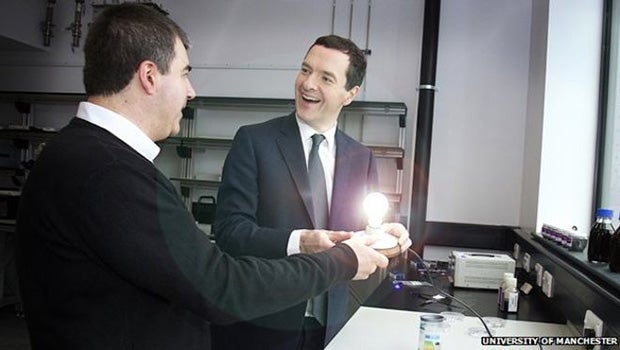Graphene light bulb due for sale in UK shops

A light bulb built using graphene is due to go on sale in the UK later this year.
It’s an exciting prospect, as its UK developers claim the bulb is the first commercially viable product containing the carbon-based material.
Graphene has long been heralded as a burgeoning wonder material, and it’s finally made its way into a consumer-facing product.
The bulb has an LED inside that’s shaped like a filament, which the designers have coated in graphene.
According to the University of Manchester team that designed the bulb, the graphene means the bulb uses 10 per cent less energy and lasts longer thanks to improved conductivity.
Development of the bulb was overseen by a Canadian-financed company called Graphene Lighting, of whom Manchester University’s deputy vice-chancellor Professor Colin Bailey is director.
The company is expecting to sell the bulb at a lower price than generic LED bulbs, which typically cost around £15 each.
Related: Biggest patents and aquisitions of the month
Speaking to the BBC, Professor Bailey said: “The graphene light bulb will use less energy. We expect it to last longer.
Graphene was first discovered in 2004 by scientists at the University of Manchester, earning scientists Andre Geim and Konstantin Novoselov the Nobel Prize for Physics, as well as knighthoods.
A micro-thin layer of graphene is stronger than steel, prompting the government to invest huge sums of money in the wonder material.
The treasury has already provided £38 million to the National Graphene Institute, with the European Regional Development Fund also having offered up a further £23 million.


